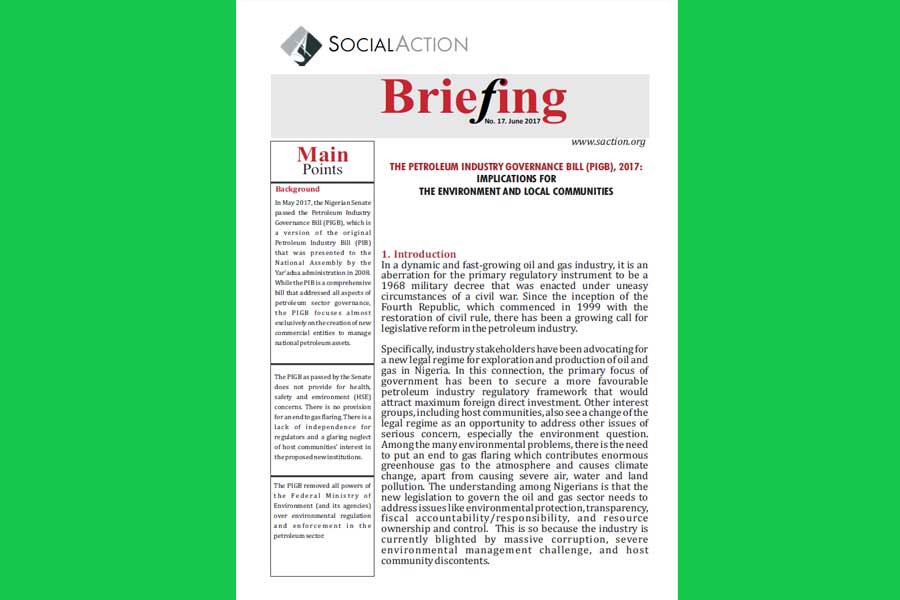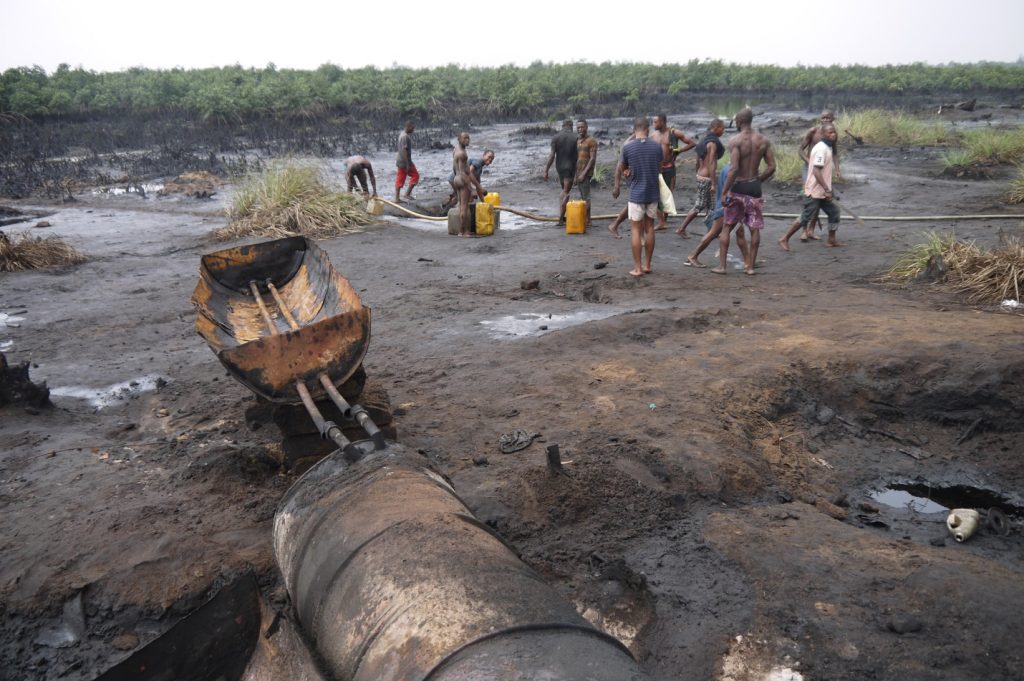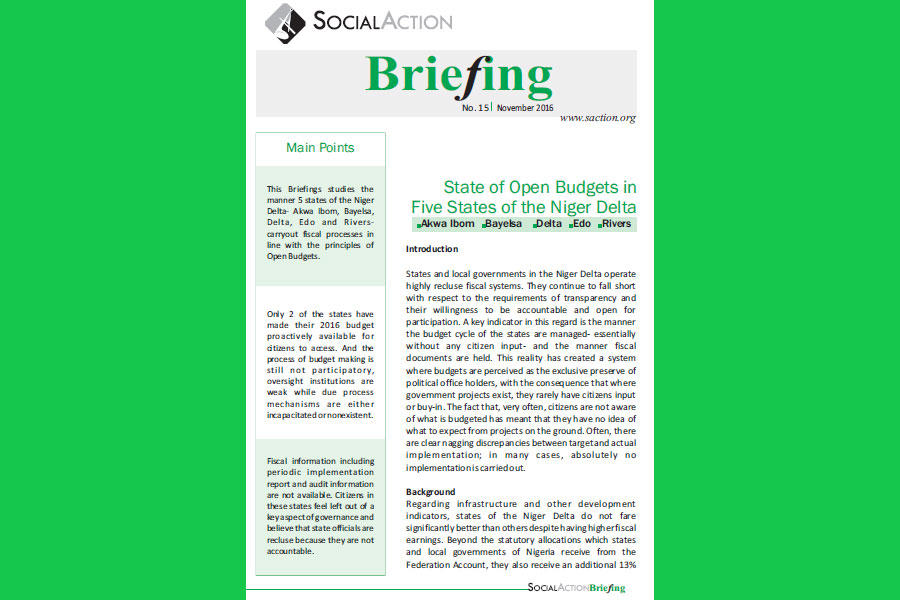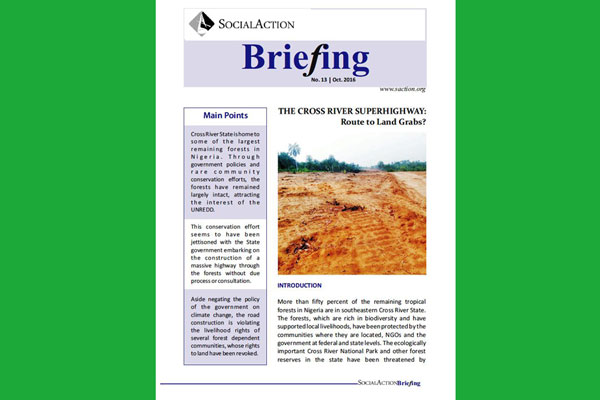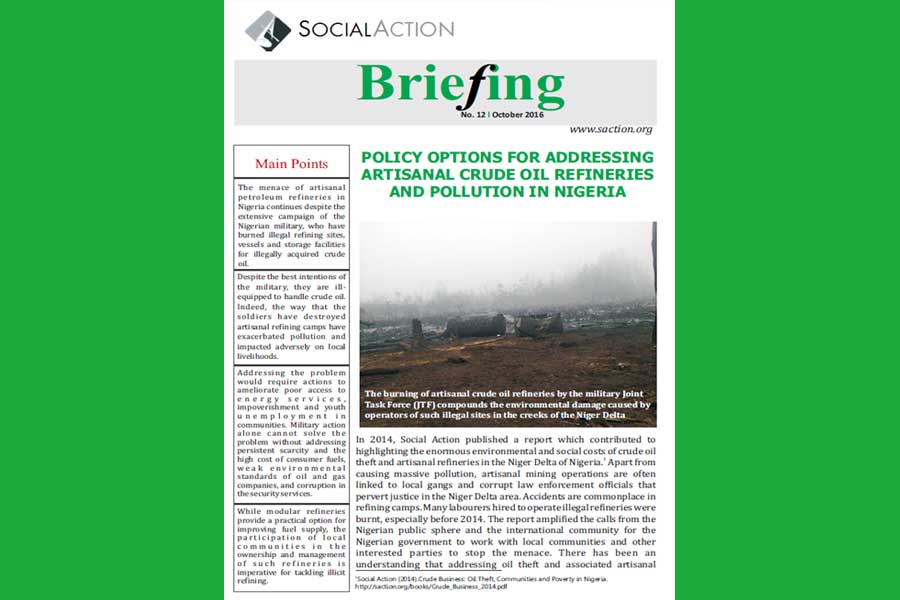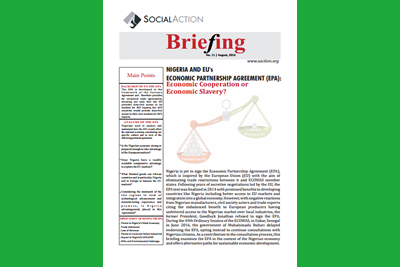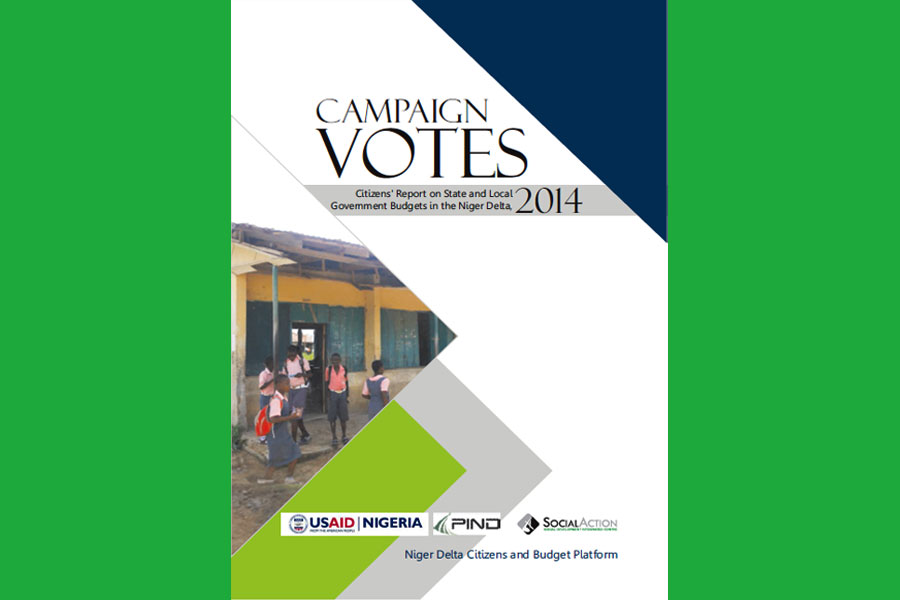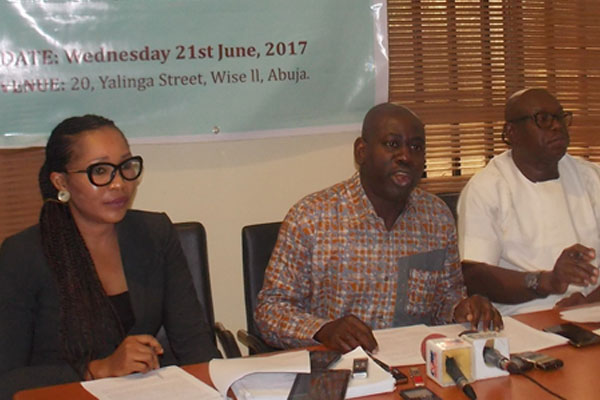
From right to left: Doifie Buokoribo (Board member), Isaac ‘Asume’ Osuoka (Executive Director), Vivian Bellonwu-Okafor (Head of Advocacy) addressing the media at Social Action’s National Advocacy Centre, Abuja
Based on the text of the Press Conference by the Social Development Integrated Centre (Social Action), June 21, 2017, Abuja
The Petroleum Industry Governance Bill (PIGB) was passed by the Senate in May 2017 (the Federal House of Representatives is still working on the bill). Social Action has undertaken a thorough study of the PIGB. The result of our examination is contained in the briefing paper, “The Petroleum Industry Governance Bill (PIGB), 2017: Implications for the Environment and Local Communities”.

